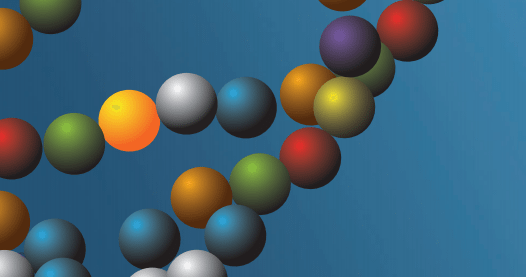On May 26, 2015, the European Medicines Agency (EMA) announced that its “Committee for Medicinal Products for Human Use” had granted accelerated assessment to Migalastat – a small molecule treatment targeted at patients suffering from Fabry disease, currently being developed by Amicus ($FOLD). The company has been one of biotech’s top performing stocks over the last year and a half, and the latest announcement looks to have compounded the bullish momentum that has carried the stock more than 250% since May last year. The latest announcement could present us with an opportunity to buy into further gains, but before we do, let’s have a look at what the company does, what it’s treatments involve, and what the implications are of accelerated assessment status.
In order to understand how the treatment works, it’s first important to understand what Fabry disease is and what it does to the body. The disease is a lysosomal storage disease. A lysosome is the part of the cell that contains something called hydraulic take enzymes – which are enzymes that break down things that are no longer needed in the body such as dead cells or external debris. One of the primary enzymes associated with lysosomes is α-galactosidase A (α-Gal A). In patients with Fabry disease, the α-Gal A is not delivered and stored in sufficient quantities to the lysosomes, and so unwanted debris is not removed efficiently. This can lead to chronic pain, kidney failure, heart disease and strokes.
So where does Migalastat come in? Migalastat – according to the company website – is designed to “bind and stabilize the endogenous α-Gal A that is made in the patient’s own cells, thereby increasing its trafficking to lysosomes”. This essentially means that the treatment serves as a kind of delivery vehicle, collecting up α-Gal A that the body has produced but is not rendering effectively, and taking it to lysosomes where it can be made put to use.
And what is the benefit of accelerated assessment status? The process was introduced in Europe in 2005, and is designed to speed up the regulatory procedure to enable patients access to new medicines quicker. It basically means that – instead of the usual 210 days required for the marketing authorization assessment (MAA) phase of the approval process, the EMA will conduct its MAA in a maximum of 150 days.
And what might this mean for the company? Well, it means we could see a quick(er) turnaround of the final step in the approval process and – in turn – an approval that comes sooner than initially expected. A number of treatments have qualified for accelerated assessment in the past – one of the prime examples being soliris for the treatment of hemolytic uremic syndrome – and, while it is by no means a sure sign that the treatment will receive approval, it can often serve as an insight into the EMA’s perception of a particular treatment.
John F. Crowley, Chairman and Chief Executive Officer of Amicus had this to say about the accelerate assessment granting:
“The designation of Accelerated Assessment in the European Union (EU) demonstrates that the EMA understands the current unmet medical need in Fabry disease as a major public health interest, and with this designation may accelerate the approval and our launch timelines to make migalastat available for patients very rapidly.”
So what is the upside potential for Amicus if the drug is approved? While Amicus has not yet revealed a price point for the treatment, we can use the cost of a current treatment alternative to estimate how big the market potential is for Migalastat. There are an estimated 5000 individuals suffering from Fabry disease across Europe, and analysts expect this to increase at a compound annual growth rate of 18% over the next four years. This means that by 2020 there will be approximately 10,000 sufferers in Europe. Current treatments offered by Shire ($SHPG) and Genzyme cost on average $200,000, making the market potential in Europe $1 billion currently and – by 2020 – $2 billion.
Conclusion: Amicus is a company will be watching very closely over the coming quarters. Biotech is notoriously unpredictable, but all the cards look lined up and pointing towards a Migalastat approval in Europe, and – if this is achieved – there could be some serious upside potential on Amicus’ current $1.1 billion market capitalization. One to watch.
